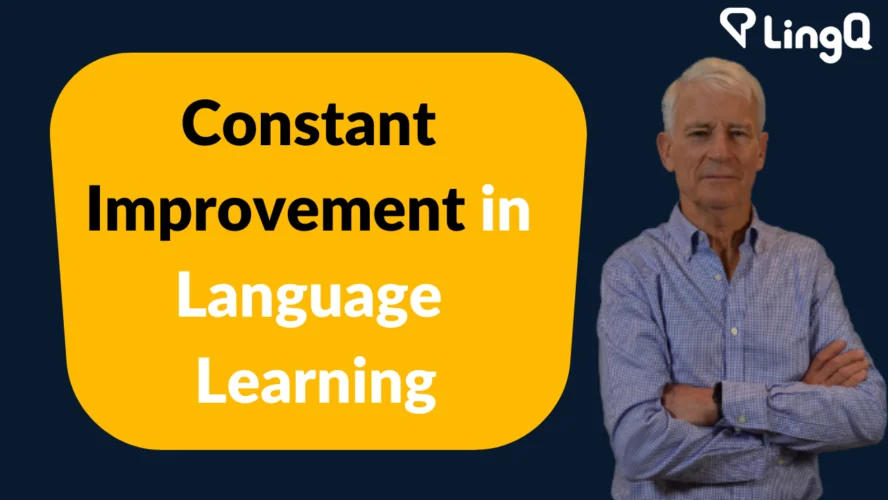I have talked in the past about some of the major technical advances that have improved language learning, for example, mp3 technology. Fifty years ago I would listen to an open reel tape recorder in my room in Hong Kong when I was learning Mandarin Chinese and now my telephone has become a super powerful language learning tool. I use mine to listen, to read, to study on LingQ, to make videos for Youtube and to record content. It is a language lab far superior to any expensive language lab even 20 years ago. All of these functions and more are available on my tablet and computer, all synchronized.
We are surrounded by technology, learning content, and even little things like earphones or AirPods to make language learning more exciting. On the Internet we can find Netflix series in our languages, with apps that help us learn from them. For example, I’m currently studying Standard Arabic. My wife happened to start watching this “Eugenie Nights” Egyptian movie on Netflix. So I kind of float through the room and see her watching it. And, of course, at first I don’t want to watch it because nothing ever happens, but then after a while it’s kind of fun, so I start watching.
These are real people speaking Egyptian Arabic, which I don’t understand at all, since I am learning Standard Arabic. Then I go to Netflix, I look up this movie and, lo and behold, it has standard Arabic subtitles so I can follow it. I use an app called Learning Languages with Netflix, so I can go through the film frame by frame. I can even import the subtitles as text into LingQ.
So the impact of modern technology, access to cultures around the world, all of this is stimulating my language learning. For example, I’ve been using the Farda podcast to help me learn Persian and a variety of Turkish podcasts for that language. I was using automatic transcription services but I have given up on them since, while they are cheaper than paying for transcription, they are just too inaccurate, and there is no punctuation. So now I contract via Upwork for people in the Middle East to transcribe these for me.
New learning techniques and apps, and exciting content are all the things that help us, encourage us, or make it easier and they’re coming at us all the time. There’s continuing improvement in the range of things that either stimulate us, help us or allow us to access more content and, remember, content is key.
I did an interview recently, on my YouTube channel, with Johan of Français Authentique, tremendous content. He provides either interesting monologues in French or he talks to people. Then he provides a transcript, just natural people talking. Great intermediate yet authentic content for people learning French. I wish someone would do that for Arabic, Persian, or Turkish, or for all languages. Rather than creating textbooks, what we need is massive amounts of this sort of casual conversation, content to bridge the gap between the beginner content, like our mini-stories, and then the more difficult stuff, like these political podcasts.
So the world of language learning is evolving step by step, little steps, big steps and we all benefit. The future for language learners is bright.







comments on “Constant Improvement in Language Learning”
Comments are closed.